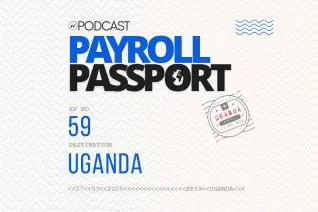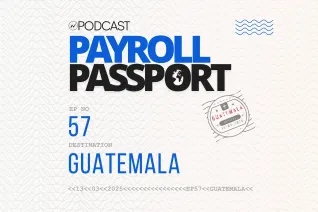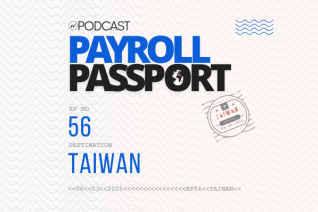Global Payroll Compliance: The Essentials You Should Know

Global payroll management is not a simple task. And one crucial aspect of this complex operation is compliance. Organizations must ensure that they adhere to the regulations and laws governing payroll processes in every country they have their presence established.
From tax laws and social security contributions to labor regulations and reporting requirements, global payroll compliance is crucial in maintaining legal and ethical standards in an organization's payroll operations. Failing to do so can lead to severe penalties and legal consequences.
So, understanding and ensuring global payroll compliance is extremely important for businesses operating globally to avoid potential pitfalls. Here is a ready reckoner for organizations that will help them stay a step ahead in the compliance game.

Employment compliance essentials
Organizations must understand the employment contracts and policies in each country and ensure that employment contracts and policies are compliant with the local laws and customs in each country where they have workers.
This includes clauses on wages, benefits, working hours, overtime, leave, termination, etc. They must also communicate these contracts and policies clearly to employees.
This procedure begins with the hiring process itself. With different countries having different employment requirements, companies must be prepared to operate in various countries.
You may be interested in | 10 Tips to ensure remote work compliance
Navigating HR compliances
HR-related compliance involves adhering to an organization’s legal and regulatory requirements governing HR practices. It includes a wide range of areas such as labor laws, employment contracts, anti-discrimination policies, workplace health and safety, and employee benefits.
There are various governing bodies for various countries and regions for regulating HR mandates. For instance, in the United States, the Occupational Safety and Health Administration (OSHA) sets standards that organizations must comply with to ensure the safety of their workforce. Laws like the General Data Protection Regulation (GDPR) in the European Union and the California Consumer Privacy Act (CCPA) in the United States establish guidelines for data protection.
Organizations must be equipped with an efficient payroll management system that helps them simplify their global payroll governance.
Payroll-related compliances
While implementing a payroll system in another country has its guidelines, processing payroll itself comes with its mandates. From minimum wages to tax calculations, overtime rates, and pay frequency, there are several aspects of payroll processing to be wary of.
Companies must ensure timely and accurate calculation and collection of taxes and other social contributions in each country. These amounts must be remitted to the relevant authorities on time and in the appropriate currency. There are governing bodies, like the Internal Revenue Service (IRS) in the US, to oversee tax filings. The employee's pay frequency must also be in accordance with local laws.
Stay ahead in the compliance game with: Compliance Quarterly Newsletter Vol. 1
It is also critical for organizations to keep accurate payroll records. This includes pay slips, tax returns, social security statements, and bank statements. They must also ensure that these records are stored securely and only for the required time.
In cases like this, having a payroll system that can automate this process while delivering accurate output is beneficial.
Other compliance considerations
The first step for companies to ensure a hassle-free experience for their global workforce is to ensure that their business and employees are registered with relevant authorities in the country where they operate. This may involve obtaining a tax identification number, a social security number, a business license, or other documents.
Organizations must also be wary of any regional mandates. For example, in EU countries, there are defined labor laws that are expected to be implemented throughout the region, as well as laws specific to a country. Similarly, in countries like India, there are payroll governing laws at the state level as well as at the national level.
In addition to this, it is also necessary to audit and review payroll compliance periodically to ensure that companies are up to date with each country's latest laws and regulations.
Handling compliance effortlessly
Compliance is not something to be taken lightly. And it is evident that a payroll system that ensures compliance is a necessity.
Fortunately, Neeyamo offers a pathbreaking global payroll technology: Neeyamo PayrollTM 3.0
A truly global and compliance-driven solution, Payroll 3.0 covers every aspect of payroll processing in over 160 countries. With its Global Payroll Technology Stack and automated data repository and tax compliance, it offers a scalable and customizable payroll architecture for organizations, ensuring a seamless payday experience for the global workforce.
Reach out to the experts today at irene.jones@neeyamo.com.
Latest Resources
Stay informed with latest updates
If you're curious and have a thirst for knowledge pertaining to the HR, payroll, and EOR universe, don't miss out on subscribing to our resources.














